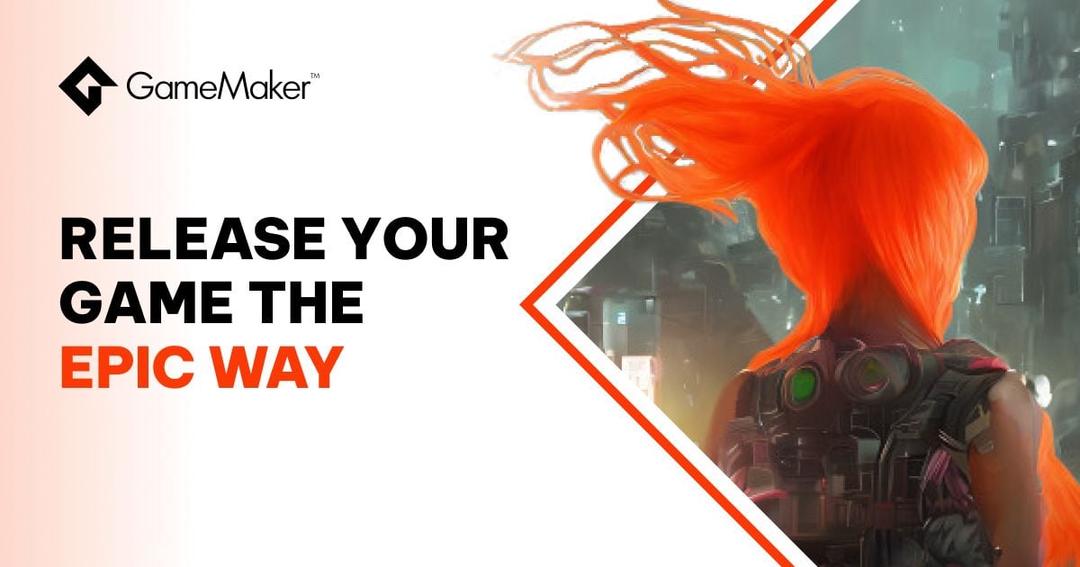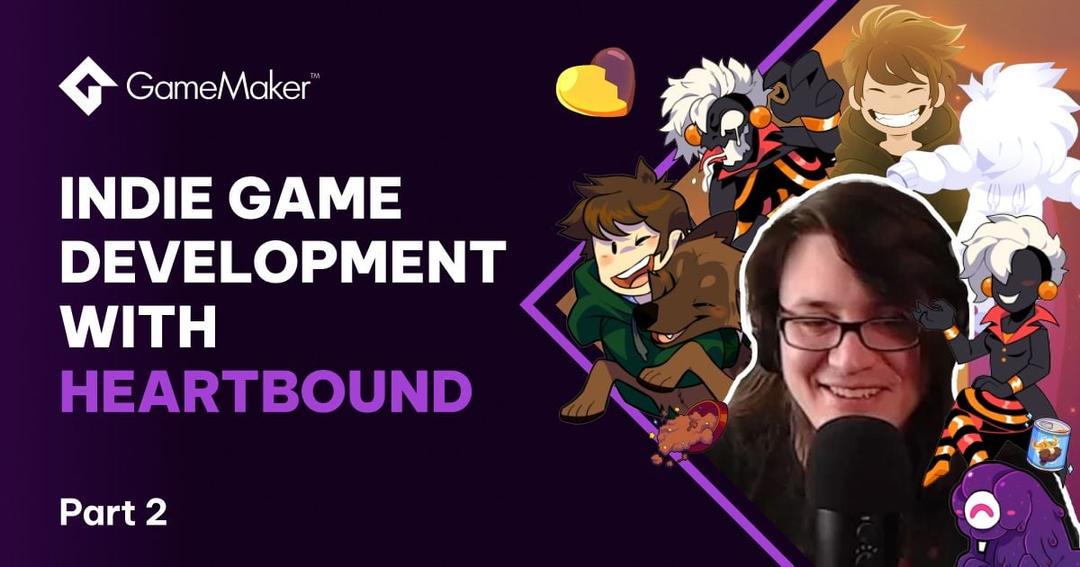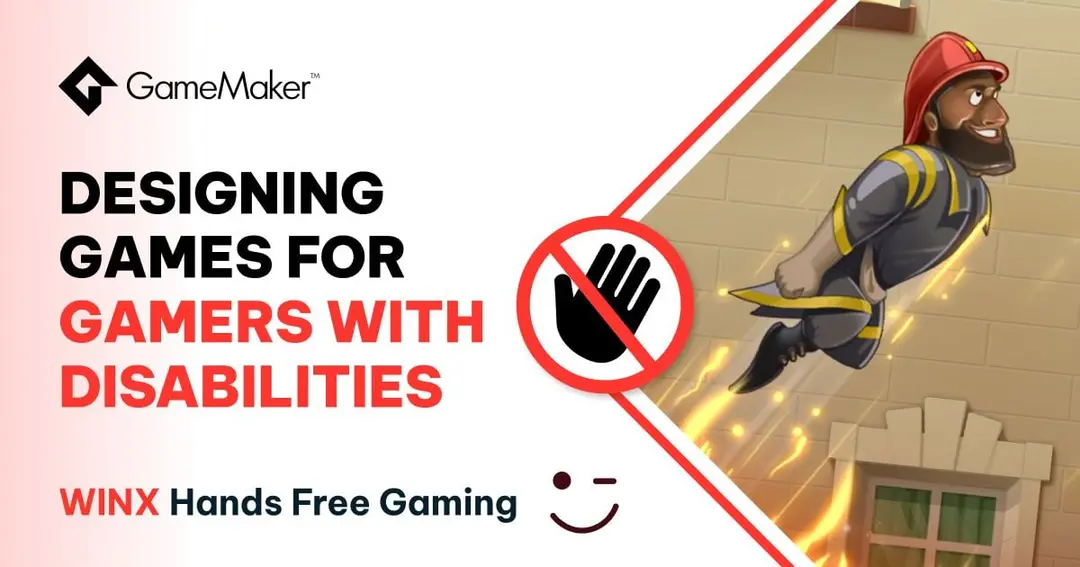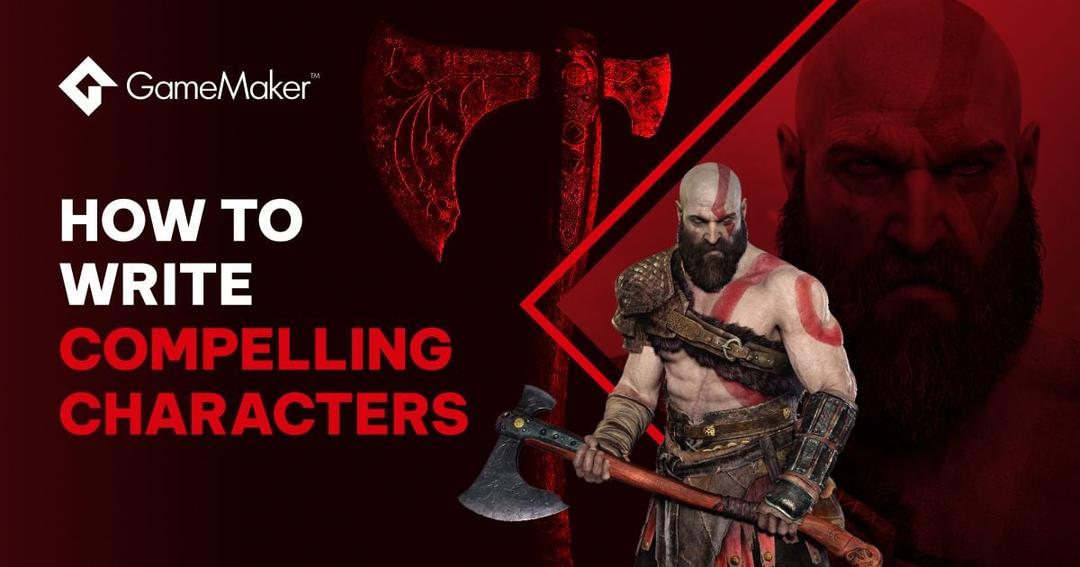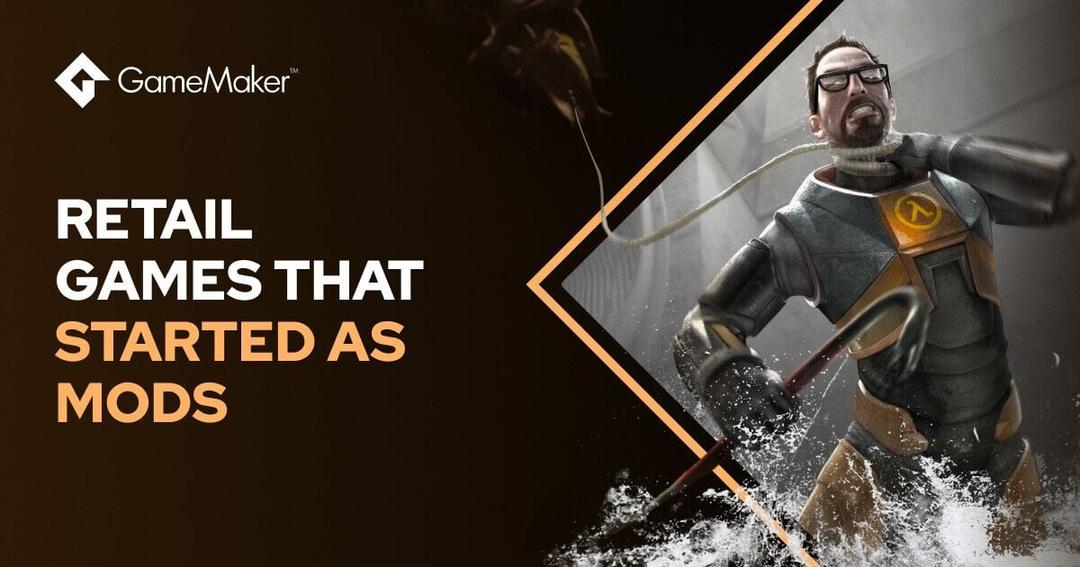14 Ways To Generate S-Tier Video Game Ideas
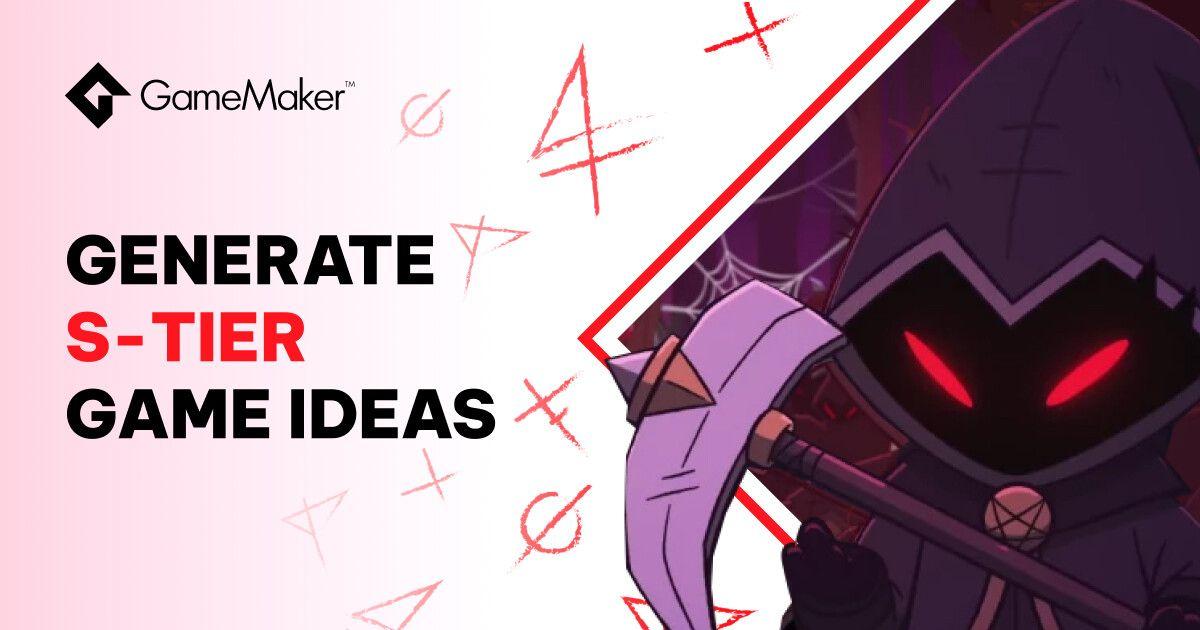
Whether you’re developing, designing, or writing a video game, coming up with great game ideas is a skill that anyone can learn.
Here are 14 proven techniques that you can use to generate high-quality video game ideas.
This article includes:
- Play Games For Inspiration
- Build Your Game Around A Genre
- Build Your Game Around A Character
- Mind Map Your Game Ideas
- Keep An Ideas Diary
- SCAMPER Technique
- Consider Market Trends
- Find Gaps In The Market
- Turn To Other Mediums
- Draw Inspiration From The Real World
- Draw On Your Own Experiences
- Use A Game Idea Generator
- Join A Game Jam With A Fixed Theme
- Join A Game Community & Ask Gamers Directly
Play Games For Inspiration
If you’re short on good video game ideas, your first stop should be your sofa.
Think back on all the games you’ve ever played: which ones stand out to you? What did you love, what did you hate, what do you wish they’d expanded on?
You can take a couple of different approaches when deciding which games to play for inspiration:
- Play games you loved or hated. Go back and rediscover what it was that left such an impression on you. Take inspiration from the parts you enjoyed, and work out how you’d address the things you didn’t.
- Play the classics. They’re classics for a reason: when you play Super Mario Bros., you’re playing the game that laid the foundation for all future 2D platformers. How would you expand and modernise those foundations for a new audience?
- Play indie games. By playing games like Dave the Diver, Cult of the Lamb, and Vampire Survivors, you can get a feel for what’s resonating with gamers today.
Now’s the time to pick up that game you’ve never gotten round to. It might just hold the key to unlocking your own indie game ideas.
And if anyone asks why you’re still playing games at three in the morning, you can tell them it’s for science. (You monster.)

Cult of the Lamb, developed by Massive Monster
Build Your Game Around A Genre
Pulling game concepts out of thin air is a tall order, so try picking a game genre first and build an idea around it:
- A shooter will require projectiles and firearms, but do you want to shoot bullets or rainbows?
- What effect will they have on the characters and surfaces they hit?
- Do you want players to feel happy about their actions, or do you want them to doubt themselves?
Questions like these can quickly snowball into the foundations of your new indie game idea.
We’ve compiled a comprehensive list of the best 2D game genres to help get your creative juices flowing.
Build Your Game Around A Character
If building around a genre isn’t your thing, why not build around a character? Decide on your hero or villain and use their characteristics to develop a world around them.
Let’s say the main character of our game is called Penelope Porkchop. She’s a pessimistic swine with a taste for truffles and a powerful right hoof. Based on what we know, how might you build a game around her?
- Maybe she’s a boxer, nicknamed the Silver Sow for her quick feet and even quicker knock-outs. Suddenly, we have a sports game.
- Maybe she’s gathering as many truffles as she can ahead of a bitter winter, punching through the enemies that get in her way. That could take the shape of an action-platformer, or even an open world survival game.
- Maybe Penelope meets Bodhi Bluebottle - an optimistic fly with an important message to deliver. Along their journey, Bodhi challenges her lone wolf worldview in a heart-warming couch co-op.
Even the best game ideas need engaging characters to tie them all together, so start with your cast and see where they take you.
Mind Map Your Game Ideas
If you’re a visual learner, committing your ideas to paper with a mind map can help you see the bigger picture more clearly.
Start your mind map off with a core part of your game, like your genre or main character. From there, start jotting down any keywords or ideas that come to mind. They could be about gameplay mechanics, characteristics, story themes, or art styles.
By the time you’re done, your page should be packed to bursting with words and phrases that can be stitched together into a well-rounded video game idea.
If you’d prefer not to use a pad and pen, use a free online mind map tool such as MindMup or MindMeister.

A Penelope Porkchop mind map, made with MindMup
Keep An Ideas Diary
Inspiration can strike at the oddest moments. Keep a notepad (or a simple note on your phone, if you’d prefer) within arms reach at all times, and jot down any idea that crosses your mind as you go about your day.
Not only does it reduce the risk of forgetting that killer video game concept you thought of while walking the dog, it’s also a perfect resource to revisit during a dry spell.
SCAMPER Technique
We’re descending into the world of complicated marketing acronyms with this one, but bear with us.
The SCAMPER method is the brainchild of Thinkertoys author Michael Michalko. Take an existing game that you’d like your next projection to emulate, and ask yourself seven questions:
- Substitute: What part of this product could be replaced?
Example: Replace manual backtracking with a fast travel system. - Combine: What aspects could be combined to create something even better?
Example: Cuphead was originally only going to feature boss fights, until Studio MDHR combined them with run-and-gun levels. - Adapt: What can be added to make this system feel modern?
Example: God of War conceals its loading screens behind cutscenes known as ‘squeeze gaps’ to keep the gameplay rolling. - Modify, magnify, maximise, or minimise: What aspects can be modified?
Example: Altering the height or distance of the camera to give the player a better view. - Put to other use: Could an aspect of this game be used differently?
Example: Crash Bandicoot spins to break crates and defeat enemies, but in your game, the spin could be used to deflect projectiles. - Eliminate: What can be removed or simplified?
Example: Replace overcomplicated lock-picking mechanics with a hidden key or a single button prompt. - Reverse, re-engineer, or rearrange: What would happen if you reversed an aspect of this game?
Example: Bioshock’s legendary ‘Would you kindly?’ twist flipped the idea of players having autonomy and free will on its head.
It’s an efficient technique that encourages you to answer the questions that are at the heart of good game design.

Cuphead, developed by Studio MDHR
Consider Market Trends
If you’re on the hunt for good game ideas, take a look around: what’s hot, what’s not, and which way is the industry heading?
Roguelikes are as popular as they’ve ever been; narrative single player experiences are back on the menu after a decade of online multiplayers; hyper-casual games are dominating gaming app charts. Is there an industry trend that you can turn into a brilliant game concept?
Find Gaps In The Market
Is there a series you know fans are desperate to see revived, a genre that’s gone quiet, or a mechanic that gamers are mourning the loss of? Fill the gap with your own spiritual successor:
- ANTONBLAST is heavily inspired by Nintendo’s long-forgotten Wario Land series, which hasn’t seen a new release since 2008.
- Fans of the WWE game series are begging developers 2K Games for a return to the classic General Manager Mode from SmackDown vs RAW 2006.
- Frogun taps into the growing nostalgia for the original PlayStation’s classic low-poly graphical style.

ANTONBLAST, developed by Summitsphere
Turn To Other Mediums
Video games aren’t the only medium that can inspire you: television, movies, music, books, and traditional artwork can all stir some of the best video game ideas.
Whether it’s ‘The Little Shop Of Horrors’ and its alien plant life, religious hymns like ‘Bringing In The Sheaves’, or even the mini-game madness of ‘Dick and Dom In Da Bungalow’, there’s inspiration to be taken from all walks of life.
Draw Inspiration From The Real World
Have you ever heard of the Haserot Angel in Cleveland, Ohio? It’s an old bronze statue, officially called The Angel of Death Victorious, that looks like it's crying thick, black tears. Legend says it weeps every Halloween, and sits above the mouth of hell.
Pretty spooky stuff, right? You’d almost think that its haunting mythos could form the basis of a video game plot.
From duck-billed platypuses and Japanese ‘living funerals’ to alien abduction insurance and pineapple on pizza, the real world is packed with unbelievable concepts worth building a game around.

The Haserot Angel. Image by Ian MacQueen
Draw On Your Own Experiences
Remember that abandoned house you used to walk by with the dressmaker mannequin in the window? Or that time you and your friends got lost in a part of town you never knew existed?
You’ve seen the world in a way no-one else has: you’ve experienced things no-one else ever will. Whether they were positive, negative, or somewhere in between, those experiences can form the basis of a great video game idea, and a story that only you can tell.
Use A Game Idea Generator
Game idea generators are a fun way to get the creative juices flowing, but the video game concepts they create shouldn’t be taken literally. ‘A tycoon game where you breed sports teams until you own everything’, for example, is almost impossible to make (and sounds fairly traumatic, to tell you the truth).
But maybe ‘until you own everything’ is enough to get your mind working. A few tweaks to the original wording (ie ‘A tycoon game where you build and buy out businesses until you own everything’) can suddenly bring an idea to life.
Orteil’s Game Idea Generator and Let’s Make A Game both have two free tools you can use to start drumming up video game ideas.

Letsmakeagame.net’s video game idea generator in action
Join A Game Jam With A Fixed Theme
Game jams are short game-making competitions with fixed themes and tight deadlines. Many jammers find the limitations liberating: when you’ve only got three days to make a game about life in a bottle, your focus sharpens and your creativity kicks into high gear.
Whatever idea you come up with will need completing before the jam deadline, but if it feels like it’s got legs, continue development after the jam concludes and build it into something even bigger. Celeste started life as a game jam, and now it's one of the most revered 2D platformers of all time.
For more information on game jams, including a comprehensive calendar of upcoming competitions, check out our beginners guide to game jams.
Join A Game Community & Ask Gamers Directly
Gaming communities are a great place to generate game ideas. These people are at the coalface with you: they’re debating the good and the bad of the games industry, the struggles and successes of indie game development, and many of them will be going through the same creative process as you.
Read through the threads, ask questions, and get the answers you’re looking for straight from the horse's mouth: what are gamers looking for, what do they like and dislike?
If you’re looking to start exploring a vibrant gaming community, check out the GameMaker Community Forum and start discussing game development with hundreds of indie game creators just like you.
Ready to get started?
Now that you’re positively percolating with your best game ideas yet, it’s time to download GameMaker and get to work!
GameMaker is the industry’s premier 2D game engine, used by thousands of developers every day to create indie classics like Undertale, Hotline Miami, and Spelunky.
It’s completely free to download and keep forever, with dozens of written guides and video tutorials to help you bring your games to life.
Happy GameMaking!



